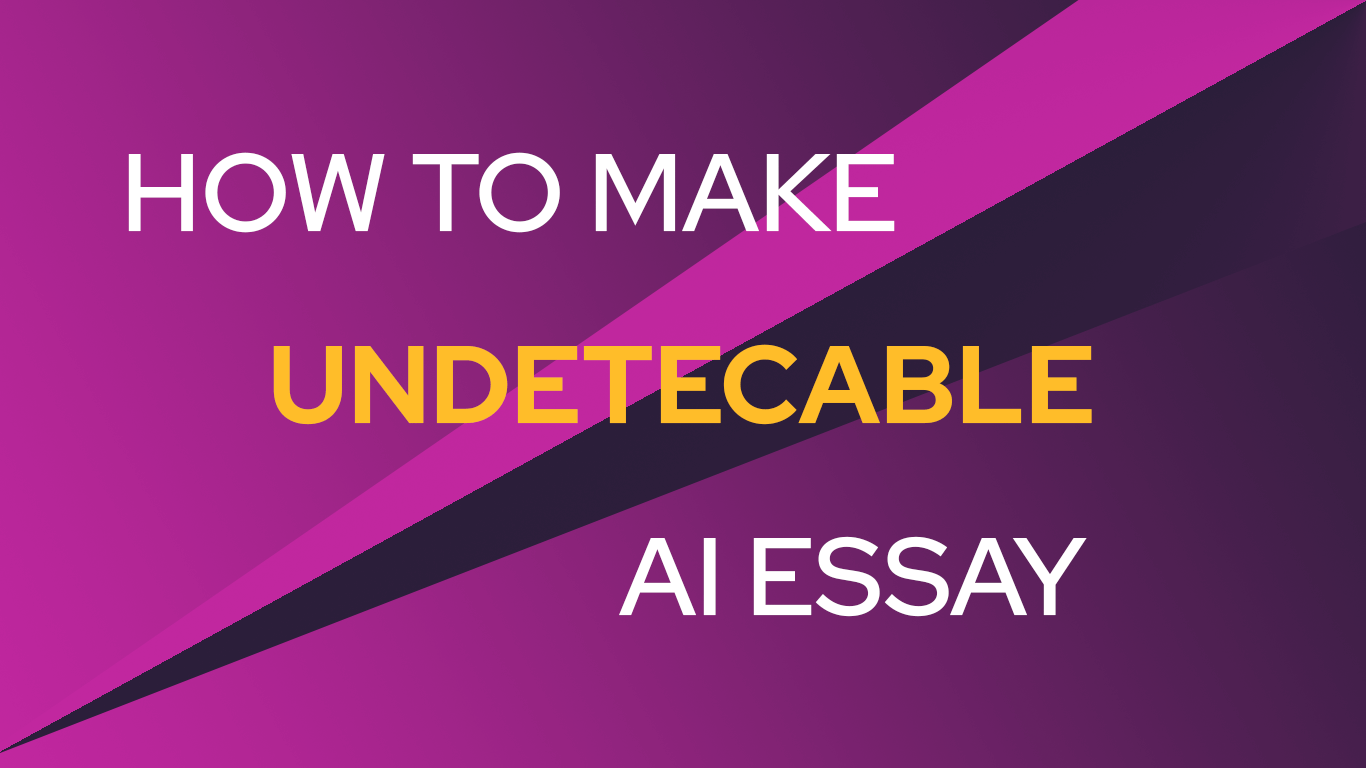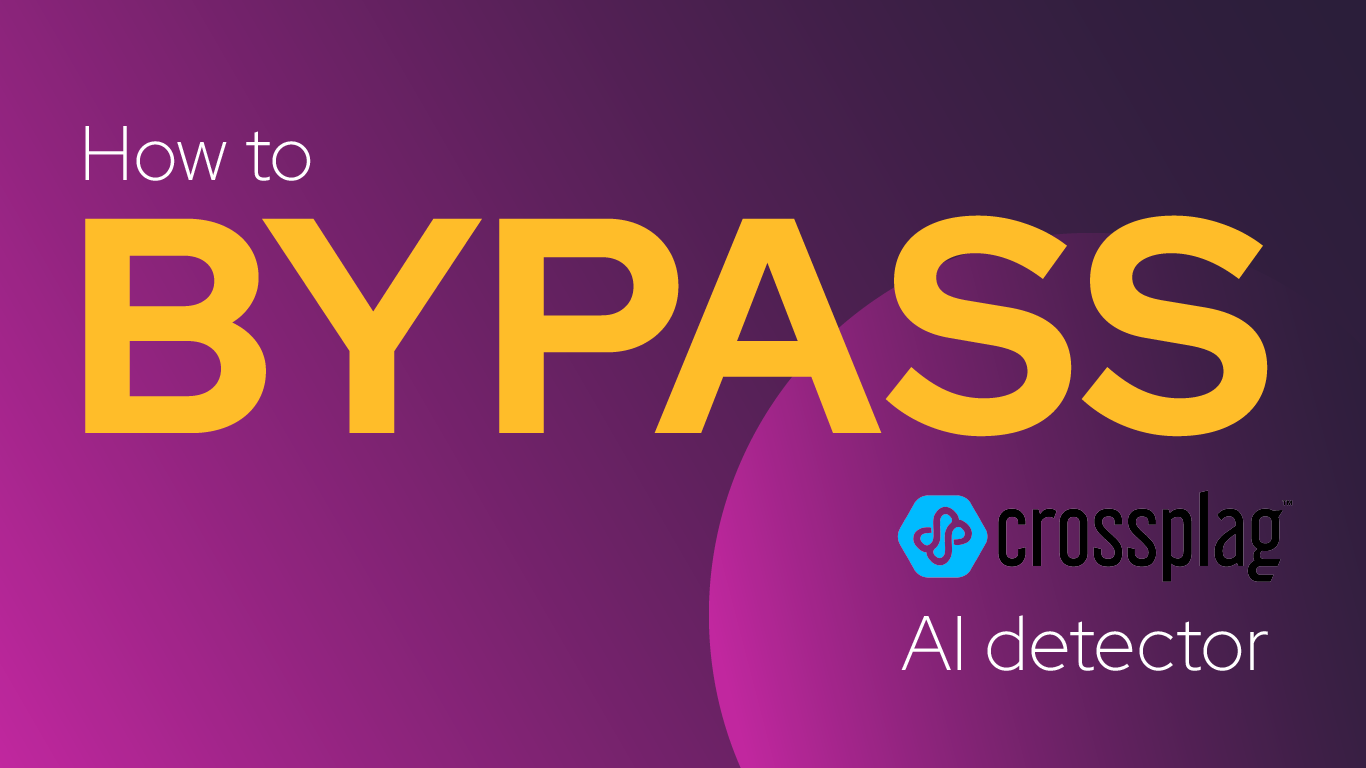Table of Contents
How to Avoid AI Generated Content Being Detected. Artificial intelligence (AI) generated content has become increasingly prevalent in today’s digital landscape. From news articles to social media posts, AI-generated content is being used to create vast amounts of text quickly and efficiently. However, this has also led to concerns about the authenticity and credibility of such content. As a result, there is a growing need to understand how to avoid AI-generated content being detected.
One of the primary concerns with AI-generated content is that it can be used to spread misinformation or propaganda. This is particularly concerning in the context of politics, where AI-generated content can be used to sway public opinion. Additionally, AI-generated content can be used to create fake reviews or endorsements, which can mislead consumers and damage the reputation of businesses.
To avoid these issues, it is important to understand how to identify AI-generated content. This can be done by looking for certain patterns or inconsistencies in the text. For example, AI-generated content may contain repetitive phrases or lack the nuance and complexity of human-generated content. By learning to recognize these patterns, individuals can take steps to avoid being misled by AI-generated content.
Understanding AI-Generated Content
Characteristics of AI Writing
AI-generated content refers to written material that is produced using artificial intelligence. The characteristics of AI writing are often distinguishable from human-written content. One of the most notable differences is the lack of personality and emotion in AI writing. AI-generated content is typically devoid of the nuances and subtleties that are present in human writing.
Another characteristic of AI writing is its consistency. AI algorithms can produce a large volume of content in a short amount of time, and the output is often consistent in terms of tone, style, and structure. This consistency can make it easier to detect AI-generated content, as it may lack the natural variations that are present in human writing.
AI Detection Tools and Algorithms
AI detection tools and algorithms are used to identify AI-generated content. These tools and algorithms work by analyzing various features of the content, such as sentence structure, grammar, and syntax. They can also analyze the vocabulary and writing style to determine whether the content was produced by a human or an AI algorithm.
There are several AI detection tools and algorithms available, and they vary in terms of their accuracy and effectiveness. Some of the most popular tools include CopyScape, Grammarly, and Turnitin. These tools can be used to check for plagiarism, grammar errors, and other issues that may indicate the use of AI-generated content.
AI detection algorithms are also used by search engines and social media platforms to identify and remove spam and low-quality content. These algorithms are constantly evolving, and they are becoming increasingly effective at detecting AI-generated content.
In summary, AI-generated content is characterized by its lack of personality and emotion, as well as its consistency in tone and style. AI detection tools and algorithms can be used to identify this type of content, and they are becoming increasingly effective at doing so.
Enhancing Content Authenticity
Adopting a Human Writing Style
One effective way to avoid AI-generated content being detected is to adopt a human writing style. This means using a natural language that is easy to read and understand, and incorporating a human touch to the content.
To achieve this, it is recommended to use a human editor to review the content and make necessary changes. A human editor can help to humanize the content and ensure that it is authentic and credible.
In addition, it is important to use a variety of writing styles to make the content more interesting and engaging. This can be achieved by using different sentence structures, varying the length of paragraphs, and using creative language.
Incorporating Personal Anecdotes and Experiences
Another way to enhance content authenticity is by incorporating personal anecdotes and experiences. This can help to make the content more relatable and engaging, and can also add a personal touch to the content.
When incorporating personal anecdotes, it is important to ensure that they are relevant to the topic and add value to the content. It is also important to use a natural language and avoid making exaggerated or false claims.
By adopting a human writing style and incorporating personal anecdotes and experiences, it is possible to enhance content authenticity and avoid AI-generated content being detected.
Optimizing Writing Techniques
Diversifying Vocabulary and Syntax
One of the best ways to avoid AI-generated content detection is to diversify vocabulary and syntax. This means using different words and sentence structures to convey the same meaning. Using synonyms and antonyms can help to vary word choice, while using different sentence structures can keep the content fresh and unique.
Using a thesaurus can be helpful in finding synonyms and antonyms for commonly used words. Additionally, using active voice instead of passive voice can make the content more engaging and less robotic. Paraphrasing and rephrasing sentences can also help to diversify the content and make it more unique.
Balancing Sentence Structures
Another way to optimize writing techniques is to balance sentence structures. This means using a mix of short and long sentences, as well as varying sentence types (e.g. declarative, interrogative, imperative, etc.). This can help to make the content more interesting and engaging to read.
Using bullet points or numbered lists can also help to break up the content and make it easier to read. Additionally, using bold or italicized text can help to emphasize important points and make them stand out.
Overall, diversifying vocabulary and syntax, as well as balancing sentence structures, can help to avoid AI-generated content detection. By using these techniques, writers can create unique and engaging content that is less likely to be flagged as generated by AI.
Strategies to Bypass AI Detection
Employing Contextual Variability
One of the most effective ways to bypass AI detection is to create content that is highly contextual. This means that the content should be written in a way that takes into account the context in which it will be used. For example, if the content is being used for a specific industry, it should use industry-specific terms and jargon. This will make it more difficult for AI algorithms to detect that the content is generated by a machine.
Another way to employ contextual variability is to use synonyms and paraphrasing. This will make the content less predictable and more difficult for AI algorithms to detect. It is also important to vary the sentence length and flow of the content to make it appear more natural and less robotic.
Minimizing Repetition and Predictability
One of the biggest challenges in creating AI-generated content is avoiding repetition and predictability. AI algorithms are designed to detect patterns and similarities in content, so it is important to minimize these as much as possible.
To do this, it is important to use a wide variety of word choices and sentence structures. It is also important to avoid using the same phrases or sentences multiple times within the same piece of content. This will make it more difficult for AI algorithms to detect patterns and similarities in the content.
Another strategy is to introduce randomness into the content. This can be done by using random sentence generators or by manually inserting random sentences or phrases into the content. This will make the content less predictable and more difficult for AI algorithms to detect.
Overall, the key to bypassing AI detection is to create content that is highly contextual, varied, and unpredictable. By employing these strategies, content creators can create AI-generated content that is more difficult for AI algorithms to detect, while still providing value to readers.
Maintaining Content Quality and Relevance
Ensuring Originality and Value
To avoid AI-generated content being detected, it is crucial to ensure that the content is original and adds value to the reader. This can be achieved by using a combination of human input and AI-generated content. Human writers can provide the necessary context and tone to the content, while AI can assist in generating the bulk of the content.
To ensure originality, it is recommended to use plagiarism checking tools and ensure that the content is not copied from other sources. Additionally, the content should be written in a conversational tone, which makes it more engaging and natural to read.
Aligning with SEO and E-A-T Principles
To maintain content quality and relevance, it is essential to align the content with SEO and E-A-T principles. This can be achieved by using relevant keywords, providing valuable information, and using a natural flow in the content.
Search engines prefer content that is relevant and provides value to the reader. Therefore, it is essential to ensure that the content aligns with the search engine’s guidelines. This can be achieved by using relevant keywords, providing valuable information, and using a natural flow in the content.
E-A-T principles (Expertise, Authoritativeness, and Trustworthiness) are also crucial in maintaining content quality and relevance. The content should be written by experts in the field and provide accurate and trustworthy information. Additionally, the content should align with the values of the organization and provide a human touch to the content.
Overall, maintaining content quality and relevance is crucial in avoiding AI-generated content being detected. By ensuring originality, aligning with SEO and E-A-T principles, and providing a human touch to the content, organizations can create high-quality content that adds value to the reader.



